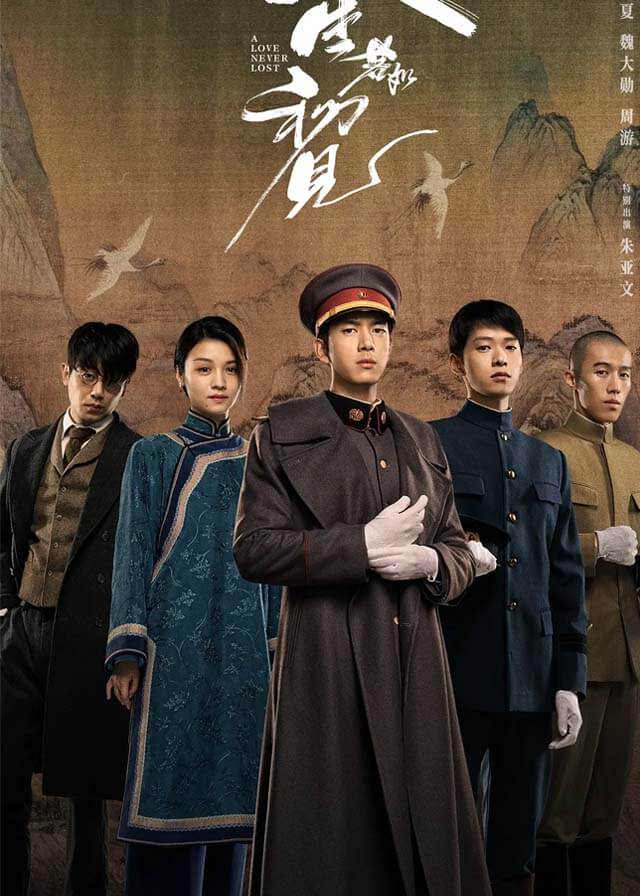A Love Never Lost Episode 40 (Ending) Recap
> A Love Never Lost Recap
Zhu Laixi was now in charge of trimming the flowers and tending the garden at the Liang residence. Yu Bugu curiously asked what he was doing, and Zhu Laixi explained the basics of pruning and honeysuckle. Zhu Laixi talked with Liang Xiang about the child, saying Yu Bugu was exactly like Liang Xiang when he was young—always doing the opposite of what he was told. Zhu Laixi recognized the person meeting with Liang Xiang as Lord Tieliang.
Liang Xiang warned him not to say anything, as Tieliang didn’t want others to know he and Liang Xiang were organizing the Royalist Party. On November 13th, Year 3 of the Xuantong era, Sun Yat-sen took office as the Provisional President and declared the country as the Republic of China. On November 15th, the Provisional Government of the Republic of China was established in Nanjing. On November 28th, Yuan Shikai formally coerced Empress Dowager Longyu into abdicating.
On the way back from court, he was attacked by an assassin at Donghua Gate, resulting in over twenty casualties. Yuan Shikai survived and used the incident as an excuse to stop attending court sessions. This morning, Yuan Shikai was stabbed at Donghua Gate. He threatened the court that he would no longer attend court. The Empress Dowager urgently convened a royal meeting to discuss countermeasures and specifically requested Liang Xiang’s presence.
The Prime Minister conveyed Yuan Shikai’s suggestion: to resolve the current deadlock, both Northern and Southern governments should be dissolved, and a new provisional government established with privileges granted to the royal family. If the royal meeting could not make a decision, the cabinet would resign. Yuan Shikai’s threat was clear to all the royals present.
Liang Xiang was deeply humiliated and proposed accepting Yuan Shikai’s resignation, reorganizing the cabinet, and sending new generals south to negotiate with the revolutionaries, free from Yuan’s Beiyang Army. It was easier said than done. Among the current group, not one could lead the Beiyang Army to fight the revolutionaries on the front lines in Wuchang. Even the former military advisor Zai Tao had only trained troops and never commanded in actual battle.
At the Beiyang front, Duan Qirui and forty-six army generals jointly submitted a telegram demanding the emperor’s immediate abdication and the establishment of a republican system. Empress Dowager Longyu didn’t even look at it and ordered it to be discussed the next day. Afterwards, Zai Feng advised Liang Xiang to be cautious, warning that Yuan Gongbao always struck with advance troops, backup support, and internal collusion.
Some officers in the Royalist Party even got tattoos to show their loyalty to the court. Liang Xiang stopped these irrational and somewhat extreme actions. The revolutionaries rose, the constitutionalists supported them, and the Beiyang faction pushed the court to the brink. Revolutionaries approached Gu Maichen, asking him to use his schoolmate ties with Liang Xiang to get close and assassinate him.
But Gu Maichen, grateful for how Liang Xiang had cared for him in Tokyo, didn’t want to be that heartless. Still, if he didn’t do it, someone else would. So the revolutionaries found a man named Chong Gong, who hid outside the Liang residence late at night, waiting for Liang Xiang’s return. Chong Gong called out to Liang Xiang. Liang Xiang didn’t recognize him, but when he saw the man reaching into his coat, he stepped back cautiously.
The bomb’s power was immense. After a loud explosion, both Liang Xiang and the assassin fell. Liang Xiang was seriously injured and hospitalized. With only a breath left, Li Renjun came to see him. While unconscious, Liang Xiang had many dreams—but none of Yang Kaizhi or Li Renjun, only vague illusions. Li Renjun took the opportunity to make a double-edged remark, telling him to stop dreaming. Liang Xiang died. The monarchists were crushed by the wheels of history.
The revolutionaries failed to complete the task of national independence and people’s liberation. The fruit of the Xinhai Revolution fell into the hands of old warlords and bureaucrats like Yuan Shikai. China’s history entered a new era. In 1921, the Communist Party of China was founded, finally bringing light to the Chinese people who had long struggled in darkness.















